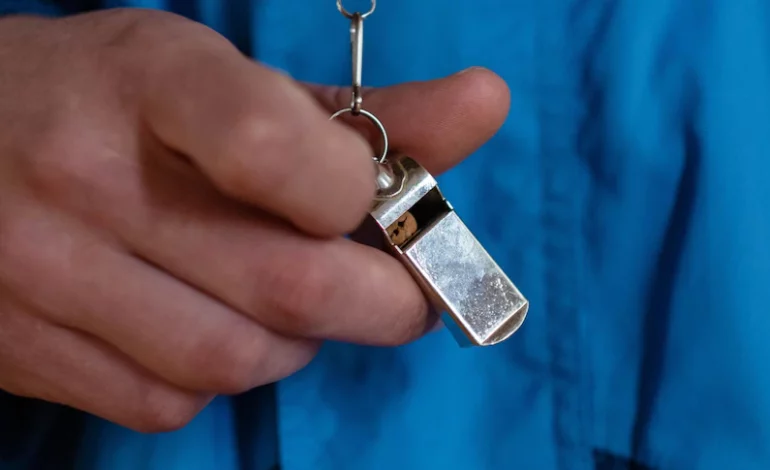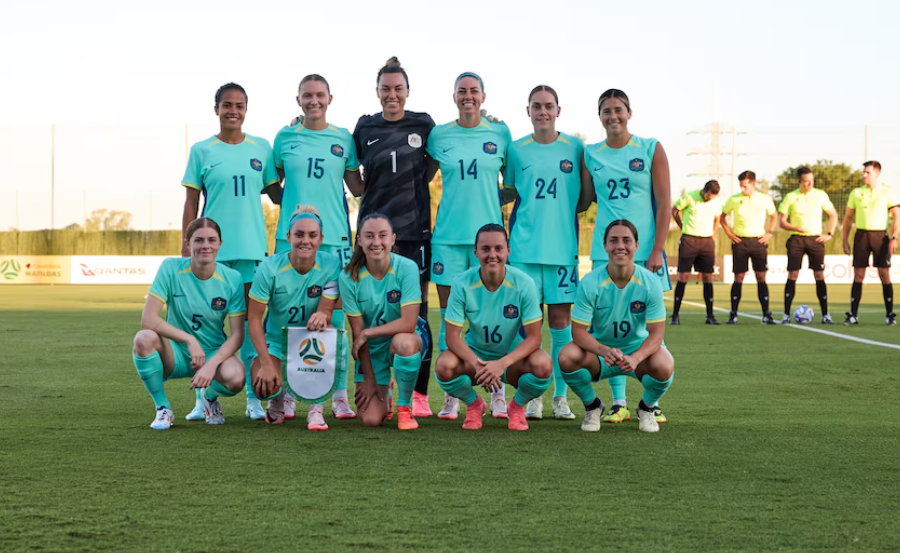The ASIC Senate Inquiry delivers a reminder that whistleblowers should be protected, not punished

Institutions that do the wrong thing usually do what they can to cover it up. That’s the force a whistleblower is up against.
Getting someone to listen is another challenge. Stephen Helberg, a trained auditor with 40 years’ experience – including holding senior roles at corporate giants Rio Tinto, Orica and EY – spoke up many times, but nobody listened. He told the men who hired him, took legal action, assisted investors who saw their life savings torched, and tipped off the corporate regulator.
Last week he appeared in front of a Senate inquiry into the performance of ASIC, chaired by Senator Andrew Bragg. Helberg named names and described the regulator’s lack of action as “negligent”.
He was referring to his attempts to inform ASIC about a known corporate syndicate allegedly “masterminded by Mr David Sutton, an Australian citizen, that misled and deceived thousands of investors, most of them in Australia, and continued the illegal activities for many years… and still actively misleading investors”.
He said the media listened and the regulator only took action when the story became public.
“The scheme has been in operation for around 10 years and as far as I can determine is still active today,” Helberg told the Senate under parliamentary privilege.
He said he and a group of investors informed ASIC in 2021 and that Sutton had been on ASIC’s radar since 2000, when a company he was a director of entered an enforceable undertaking after an investigation found irregular share trading and misleading reporting.
Senator Bragg wanted details on ASIC’s response. Other than acknowledging it had received the various complaints, there was little else, Helberg said.
Growing suspicions and ‘slaps on the wrist’
Helberg was an insider. He had been hired in 2016 to run one of the companies, Aus Streaming, an unlisted public company.
He told the Senate that he started to become suspicious a few months into his job. He says he couldn’t trace the assets that sat on the balance sheets but he uncovered a number of companies and cross holdings, most registered in tax havens. He told the Senate the balance sheet was fraudulent.
He said the auditors had provided audit opinions which were used to entice investors to rely on the accounts to make their investments.
He quit and called in the lawyers. Months later it was wound up. He then applied to the court for a special purpose liquidator to track down whether the assets existed.
In 2020 PwC, the special purpose liquidator, sent a forensic report to ASIC, saying it could not trace the assets. It said it had found a “systemic and deliberate attempt since at least September 2016 to mislead Aus Streaming’s external stakeholders as to the value of the investments”.
Senator Bragg asked Helberg if ASIC had ever interviewed him. “No… I have offered multiple times but have been declined,” was the response.
In July this year, ASIC banned Sutton from providing any financial services and cancelled the Australian financial services licence of Sutton’s company, McFaddens Securities, previously known as APC Securities.
Sutton appealed the ban to the Administrative Appeals Tribunal and McFaddens appealed ASIC’s decision to cancel its licence.
“In essence, ASIC slapped a known fraudster known to them on the wrist with a tissue, absolutely just for show,” Helberg told the Senate.
Helberg told the Senate he was speaking up in the hope that investors would be protected, noting he had lost hundreds of thousands of dollars, and didn’t expect to see any of it. ASIC said in a statement its investigation was continuing. It said as part of its inquiries it would take into account information provided by Helberg and would engage with him and others as necessary as the investigation proceeds.
Such is the plight of people who refuse to sit in silence.
Some lose their jobs, their marriages and some face losing their freedom.
Lives on hold
Next month former military lawyer and whistleblower David McBride faces trial by jury for allegedly leaking classified war crimes information to the media. If he is found guilty he will go to jail.
Next year ATO whistleblower Richard Boyle faces trial and if found guilty he could face years in jail. Boyle went public in April 2018 as part of a media investigation into the ATO that I was doing for Four Corners, The Sydney Morning Herald and The Age.
Boyle revealed that his area of the ATO in Adelaide had been instructed to use more heavy-handed debt collection tactics on taxpayers who owed the agency money.
He spoke out months after he lodged a public interest disclosure about his concerns to the ATO.
McBride and Boyle have had their lives on hold for more than five years.
Attorney General Mark Dreyfus has the power to pardon both men, under section 71B of the Judiciary Act, to stop prosecutions that are not in the public interest.
Dreyfus knows the Public Interest Disclosure Act he set up is broken. He intervened in Bernard Collaery’s trial and spun it that he was a defender of whistleblowers.
Indeed, in 2019 Dreyfus issued a press release saying a Shorten Labor Government would protect and reward Australians who blow the whistle on crime and corruption.
It said if elected, it would set up a whistleblower rewards scheme, establish a whistleblower protection authority, overhaul whistleblowing laws with a single whistleblowing act and fund a special prosecutor to bring corporate criminals to justice.
“Right now, blowing the whistle on crime and misconduct is incredibly difficult, with whistleblowers often facing reprisals, and some are never able to work again,” the press release said. “For many Australians who see wrongdoing and want it to stop, blowing the whistle isn’t worth the risk.”
Growing concerns about whistleblower protections
The Albanese government has done none of that.
It is creating a growing disquiet in the public about the need to better protect whistleblowers.
One of the country’s most celebrated whistleblowers, Jeff Morris, who exposed rampant misconduct inside the Commonwealth Bank’s financial planning division and helped trigger a banking royal commission, is a key advocate for change.
“Since he’s been in office, he has done nothing to drop these cases, which he inherited from the Morison government,” Morris says. “I just wonder how he expects anybody to believe him, when he talks about whistleblower protections, when, on the other hand, he’s actually prosecuting whistleblowers.”
Morris says his advice to anyone seeing wrongdoing is “don’t put your faith in any of the whistleblower protections. The best thing you can do would be to send documents to an investigative journalist anonymously, and walk away.”
Last month former independent senator Rex Patrick, a strong supporter of whistleblowers, launched a public advocacy fund to help inform the public about the plight of McBride and Boyle. Separately, the Human Rights Law Centre has launched a Whistleblower Project, a new legal support service for whistleblowers.
It comes ahead of the commencement of the National Anti-Corruption Commission, but as senior lawyer at the Human Rights Law Centre Kieran Pender says, the NACC will be ineffective without whistleblowers.
“If those who witness corruption do not feel confident to speak up, how will the National Anti-Corruption Commission do its job effectively and robustly? Whistleblowers are the lifeblood of integrity bodies, but the Commission lacks a robust whistleblowing framework and a dedicated whistleblower protection office or commissioner.”
Across the country panels and conferences have been organised for the remainder of the year to discuss whistleblower protections.
ABC’s Background Briefing is launching a six-part podcast series titled The Whistleblowers, the brainchild of Fanou Filali, which will examine the personal stories of some of Australia’s biggest headlines. They witnessed wrongdoing and spoke up, despite the risks. They include financial advisers, nurses, electorate officers and insiders.
Their actions helped bring to light some of Australia’s biggest and dirtiest scandals.
They took on huge risks at a huge personal cost. But their actions brought about profound change.
They, and others, are our unsung heroes. This series shows why whistleblowers need to be protected, not punished.
SOURCE: ABCNEWS





